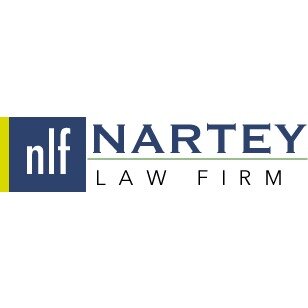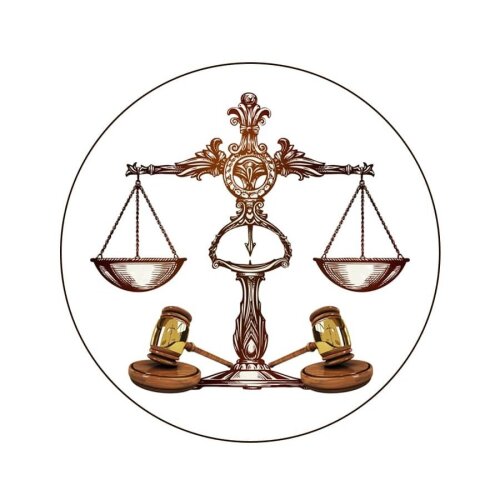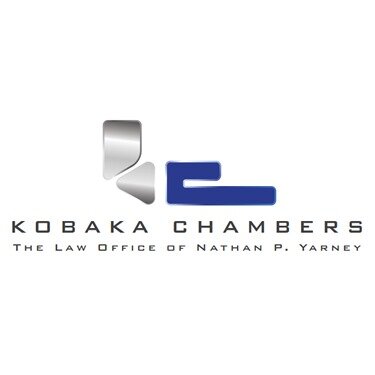Best Estate Planning Lawyers in Ghana
Share your needs with us, get contacted by law firms.
Free. Takes 2 min.
Or refine your search by selecting a city:
List of the best lawyers in Ghana
About Estate Planning Law in Ghana
Estate planning in Ghana involves the process of arranging for the management and disposition of a person's estate during their life and after death. It ensures that an individual's assets are distributed according to their wishes while minimizing taxes, legal fees, and other expenses. It's a crucial aspect of financial and family planning that provides peace of mind, continuity, and security for future generations. Estate planning can include wills, trusts, powers of attorney, and the designation of beneficiaries, among other elements.
Why You May Need a Lawyer
Engaging a lawyer for estate planning in Ghana can be essential in several situations:
- If you have a sizable or complex estate, a lawyer can help navigate the intricacies to ensure all legal requirements are met.
- When there are family issues or disputes, legal guidance can help manage and resolve these effectively.
- A lawyer ensures that your estate plan is compliant with current laws and regulations, providing validity and enforceability.
- In cases of business ownership, legal advice can facilitate business succession planning.
- If you're unfamiliar with legal documents like wills, trusts, or powers of attorney, a lawyer can provide clarity and assistance.
Local Laws Overview
Estate planning in Ghana is governed by various laws. Key aspects include:
- Intestate Succession Law, 1985 (PNDCL 111): Governs the distribution of an estate when someone dies without a will.
- The Wills Act, 1971 (Act 360): Regulates the preparation and execution of wills, including the revocation, alteration, and requirements for validity.
- Administration of Estates Act, 1961 (Act 63): Provides guidelines for the administration of estates and probate processes.
- Property Rights of Spouses Bill: Addresses the distribution of property acquired during marriage upon divorce or death.
- Trust laws and the use of fiduciaries are also relevant, primarily when setting up trusts for property management and beneficiary designation.
Frequently Asked Questions
What is the purpose of a will in Ghana?
A will serves to ensure that an individual's assets are distributed according to their wishes after death. It can also appoint guardians for minors and express wishes for funeral arrangements.
How does the Intestate Succession Law affect estate distribution?
If someone dies without a will, the Intestate Succession Law dictates how their estate is distributed among surviving relatives such as the spouse, children, parents, and other family members.
Can I revise my will after it has been made?
Yes, a will can be altered or revoked at any time before the testator's death, provided they are of sound mind. This is commonly done through an official codicil or creating a new will.
What are the tax implications of estate planning?
In Ghana, there may be taxes such as capital gains tax and estate duty, depending on the structure of the estate. Consulting a lawyer can help in strategizing to minimize these taxes legally.
Do I need a lawyer to create a will?
While it's not legally required to have a lawyer draft a will in Ghana, having one can ensure the document's validity and comprehensiveness, minimizing potential contestation or errors.
What is probate, and is it necessary in Ghana?
Probate is the legal process of validating a deceased person's will. It's necessary to ensure the estate is distributed according to the will's terms. Without a will, the estate goes through an administration process under the intestate laws.
Can foreigners plan their estate in Ghana?
Yes, foreigners with assets in Ghana can engage in estate planning. However, they should seek local legal expertise to navigate specific laws affecting non-citizens.
Is it possible to disinherit a family member in Ghana?
A will-maker can choose not to leave a portion of their estate to certain family members. However, under intestate laws, there are automatic provisions for spouses and children unless legally challenged.
How are digital assets addressed in estate planning?
Digital assets, while a newer concept, can be included in estate planning by listing digital accounts and providing directions for their handling and access details.
What happens if someone contests a will?
Should a will be contested, it can lead to legal proceedings. The court will determine the validity based on evidence of incapacity, undue influence, or improper documentation.
Additional Resources
The following organizations and resources can provide further assistance for estate planning in Ghana:
- Ghana Bar Association: Offers resources and access to lawyers specializing in estate planning.
- Ministry of Justice and Attorney General: Provides legal information and resources surrounding estate laws.
- Judicial Service of Ghana: For more formal guidance on the probate process and court system in relation to estates.
- Law firms specializing in estate planning: These can offer personalized legal services tailored to individual estate planning needs.
Next Steps
If you require legal assistance for estate planning in Ghana, consider the following steps:
- Collect all relevant financial information and asset documentation to have a clear picture of your estate.
- Identify your goals and objectives for estate distribution and management.
- Consult with a lawyer who specializes in estate planning to discuss your situation and explore legal options.
- Develop and document a comprehensive estate plan, ensuring it aligns with your wishes and complies with Ghanaian laws.
- Regularly review and update your estate plan, especially after significant life events like marriage, birth, or death.
Lawzana helps you find the best lawyers and law firms in Ghana through a curated and pre-screened list of qualified legal professionals. Our platform offers rankings and detailed profiles of attorneys and law firms, allowing you to compare based on practice areas, including Estate Planning, experience, and client feedback.
Each profile includes a description of the firm's areas of practice, client reviews, team members and partners, year of establishment, spoken languages, office locations, contact information, social media presence, and any published articles or resources. Most firms on our platform speak English and are experienced in both local and international legal matters.
Get a quote from top-rated law firms in Ghana — quickly, securely, and without unnecessary hassle.
Disclaimer:
The information provided on this page is for general informational purposes only and does not constitute legal advice. While we strive to ensure the accuracy and relevance of the content, legal information may change over time, and interpretations of the law can vary. You should always consult with a qualified legal professional for advice specific to your situation.
We disclaim all liability for actions taken or not taken based on the content of this page. If you believe any information is incorrect or outdated, please contact us, and we will review and update it where appropriate.
Browse estate planning law firms by city in Ghana
Refine your search by selecting a city.














